Low Oil Pressure
Low Oil Pressure
Car Has Low Engine Oil Pressure
Step by step guide on how to troubleshoot and repair low oil pressure, this information pertains to all internal combustion engines.
Difficulty Scale: 5 of 10
Helpful Information
Engine oil is used to cool and lubricate bearing and machined surfaces. Without oil pressure an engine will experience extreme internal engine damage due to heat caused by friction. All engines run on a pre-set pressure that cannot be adjusted. This pressure will vary depending on engine speed, temperature and weight oil. As a rule of thumb, the engine oil pressure gauge shouldn't drop below 1/4 or exceed 3/4 pressure of the gauge.
Tools and Supplies Needed
Start with the car on level ground, in park with the emergency brake set.
Step 1 - To verify the engine oil pressure is low, start the engine (cold) and observe the gauge or light.
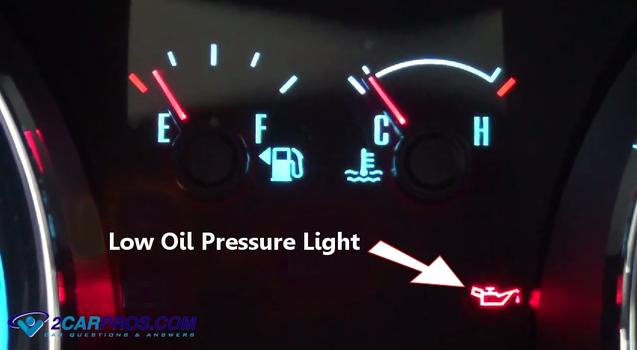
Low Oil Pressure
Step 2 - Using the engine oil dip stick, check the oil level of the engine and ensure a proper level.
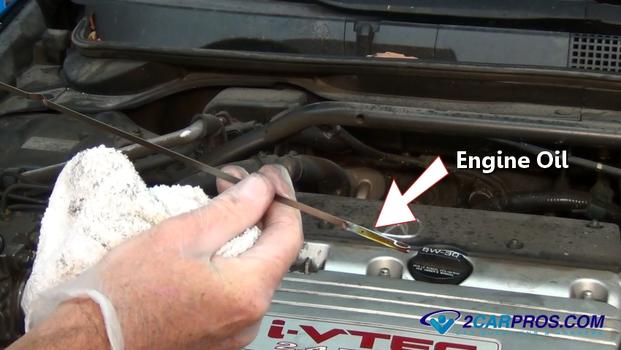
Engine Oil
Step 3 - The oil pressure switch is designed to send feedback data to the gauge or computer. These switches can go bad causing the gauge or light to show a false reading, remove the switch and insert a manual gauge to the engine and restart the engine. The gauge should read between 25 and 45 pounds.

Oil Pressure Switch
Step 4 - The oil pump uses a screen to keep out impurities before entering the pump. If this screen becomes plugged with sludge due to lack of maintenance, the pump will scavenge causing low pressure. (Engine oil pan removed while turned over.)
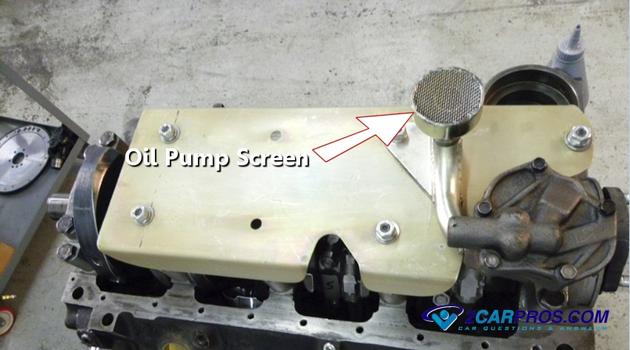
Oil Pump Pick-Up Screen
Step 5 - The oil pump is also designed with an oil pressure relief valve and spring which regulates pressure. If this valve becomes faulty caused by a broken pressure spring the pump will have low oil pressure.
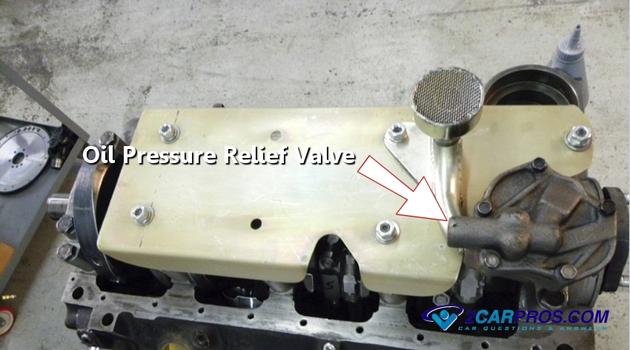
Oil Pressure Relief Valve
Step 6 - An engine bearing is designed to support the crankshaft and other various engine parts while in motion. When these bearings wear, they can allow more oil to escape causing low oil pressure, this is a sign the engine has worn out and replacement or rebuilding is needed.
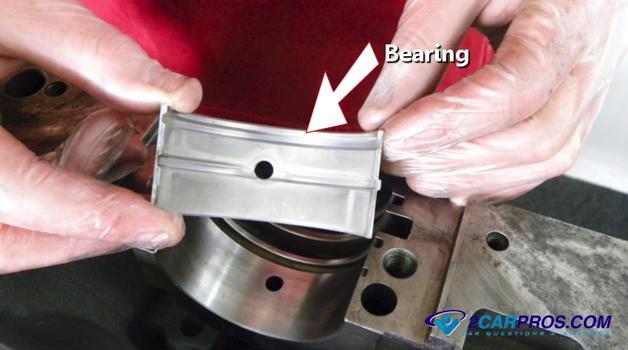
Engine Bearing
Step 7 - If the engine has no oil pressure, suspect the oil pump drive, some manufactures use a belt to drive the pump which are prone to failure.
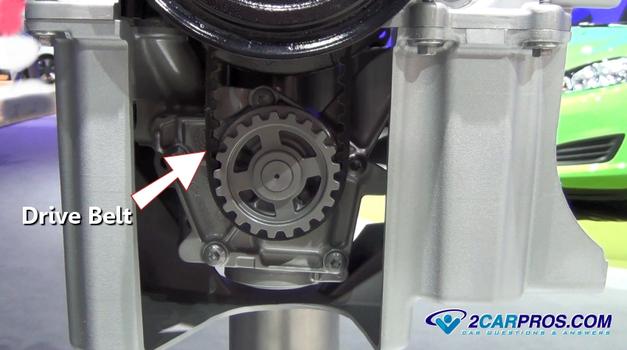
Oil Pump Drive Belt
- Flashlight
- Socket set
- Wrench Set
- Screwdrivers
- Cleaner
- Fluid catch basin
- Manual oil pressure gauge
- Protective gloves and eyewear
Start with the car on level ground, in park with the emergency brake set.

Low Oil Pressure
Step 2 - Using the engine oil dip stick, check the oil level of the engine and ensure a proper level.

Engine Oil

Oil Pressure Switch

Oil Pump Pick-Up Screen

Oil Pressure Relief Valve

Engine Bearing

Oil Pump Drive Belt
Comments
Post a Comment